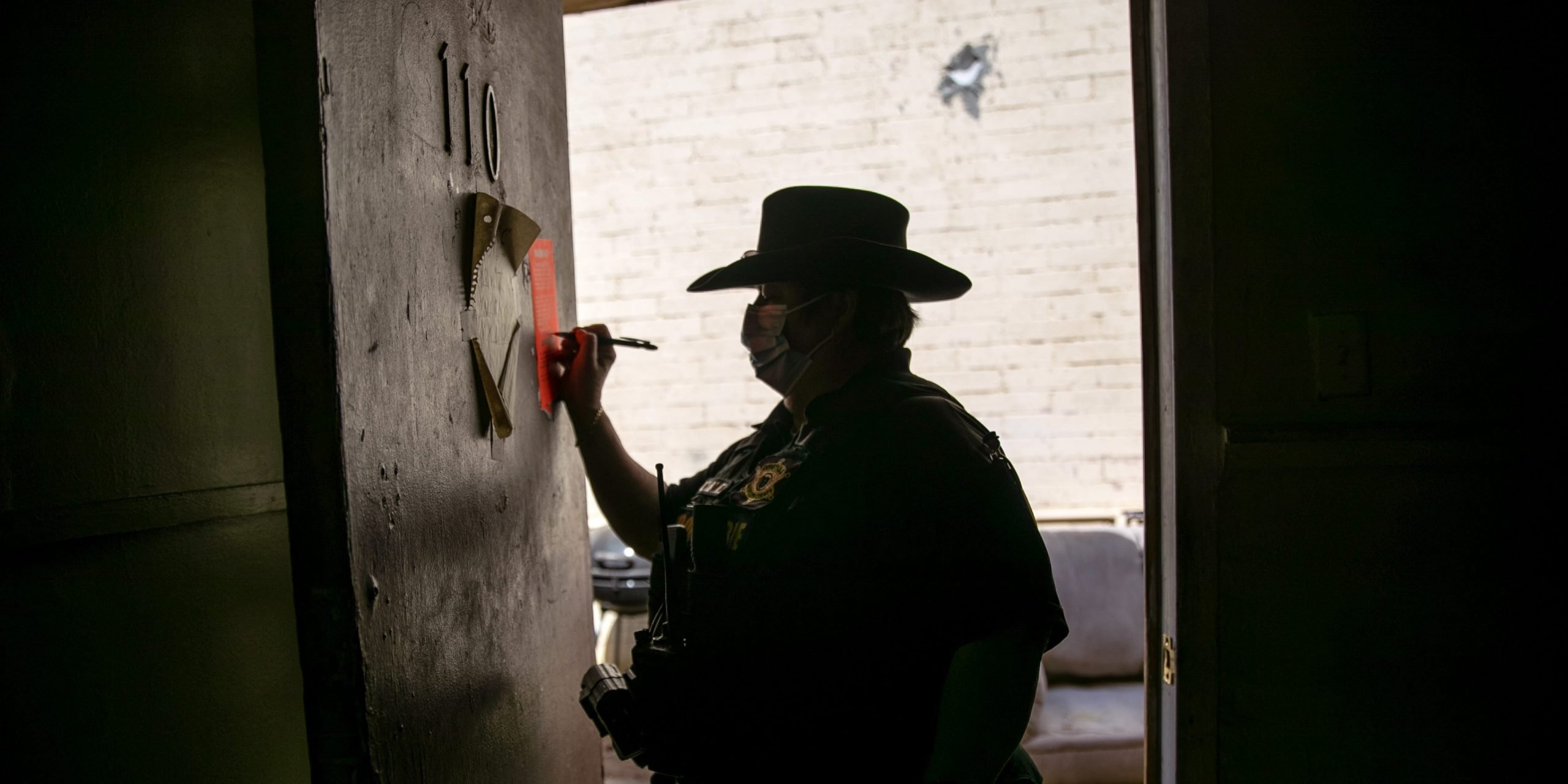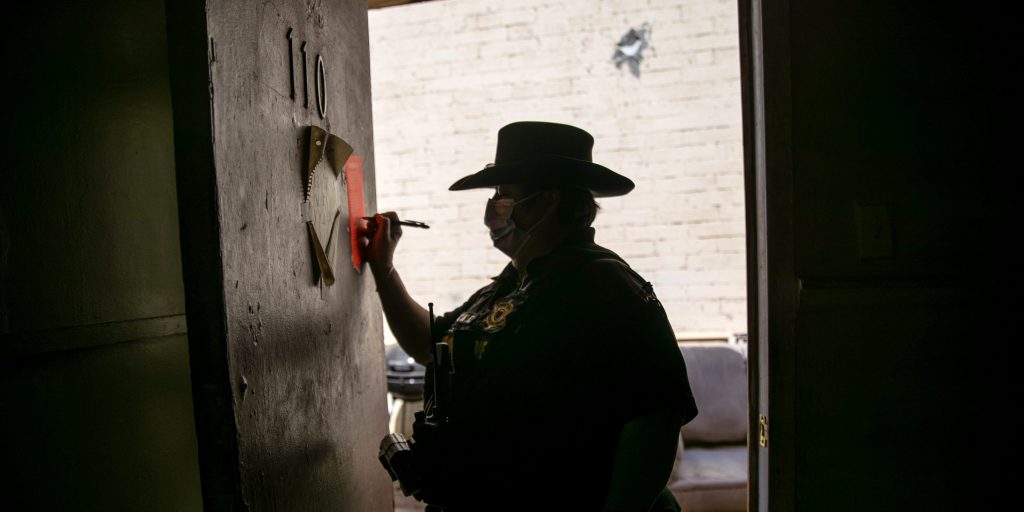
John Moore/Getty Images
- Goldman Sachs projects 750,000 households face eviction by January with potentially "severe" COVID-19 consequences.
- The Supreme Court struck down the federal eviction moratorium last week.
- Democrats and the White House are prioritizing fixes to an emergency rent relief program.
- See more stories on Insider's business page.
Goldman Sachs projects that landlords could evict 750,000 households by the end of 2021 after the Supreme Court's recent decision to strike down a federal eviction ban. They also warned there could be "severe" public health consequences from the coming wave of evictions."
The Goldman analysts estimated 3.5 million households are struggling to catch up on rent, the group said in a note released Sunday. Collectively, those households owe landlords around $17 billion in unpaid rent, Goldman projected.
Goldman wrote that while the coming evictions may dent household consumption and job growth, the public health consequences are probably more "severe" and it may increase virus infections. COVID-19 cases from the Delta variant have surged nationwide, along with hospitalizations in many parts of the US.
Up until July 31, renters who hadn't made monthly payments were shielded from eviction due to a moratorium imposed by the Centers for Disease Control and Prevention. That went in tandem with an emergency rental assistance program designed to provide renters with federal aid so they can stay in their homes.
But the money has been slow to get to beleaguered renters in most states and cities due to bureaucratic snags and onerous documentation requirements, among other problems. It helped spark a last-minute Democratic push to extend the moratorium so renters could have more time to receive federal relief, but it collapsed because of resistance from moderates.
Faced with withering pressure from progressives, the Biden administration enacted a limited moratorium in counties struggling with high infection rates earlier this month. But the Supreme Court struck that down on Thursday evening in a 6-3 ruling.
Conservative justices banded together and ruled that the public health agency had overstepped its authority, which could pave the way for additional federal overreach.
-Jeff Stein (@JStein_WaPo) August 30, 2021
In the wake of the ruling shutting down the federal eviction ban, only seven states and the District of Columbia have eviction moratoriums. Housing experts warn a looming wave of evictions could hit low-income Black Americans the hardest.
"Evictions will occur where unemployment rates are highest-that is, where poor and mostly black service industry workers live," Paul Williams, a fellow at the Jain Family Institute, wrote Monday on Twitter. He added most homeless shelters are already at capacity.
On Friday, the White House appeared to concede Democrats couldn't muster the votes in Congress to renew a federal eviction ban. Instead, it was prioritizing ironing out the problems in the rental relief program.
"If there were enough votes to pass an eviction moratorium in Congress, it would have happened," White House Press Secretary Jen Psaki said at a daily news briefing. "It hasn't happened."
Reps. Alexandria Ocasio Cortez of New York and Cori Bush of Missouri joined 61 House Democrats in calling for Democratic leaders to assist in extending the moratorium.
"The impending eviction crisis is a matter of public health and safety that demands an urgent legislative solution to prevent further harm and needless loss of human life," the letter said.

